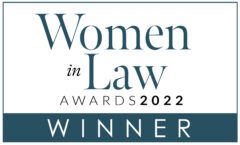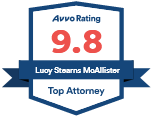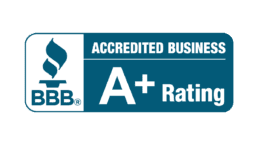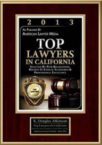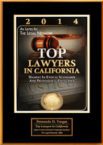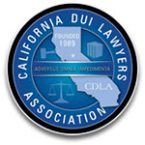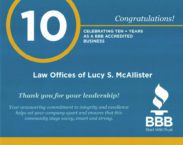Any person desiring to originate mortgage loans in the state of California must obtain a real estate license, either in the real estate salesperson, or real estate broker capacity. The California Department of Real Estate (California DRE) is the licensing authority with jurisdiction over disciplinary actions for California real estate licensees.
There are 3 types of mortgage broker licenses issued in California which are distinguished by the ability to make and service loans vs negotiate loans.
►Finance Broker License: Finance brokers are only allowed to broker loans with those holding a finance lender license. Anyone making and brokering consumer and commercial loans in the state is required to obtain this type of license with the exception of those noted below:
- A California licensed real estate broker when making or arranging a loan secured by a lien on real property.
- Banks, trust companies, savings and loan associations, insurance premium finance agencies, credit unions, small business investment companies, California business and industrial development corporations, or licensed pawnbrokers.
- A company licensed under the California Residential Mortgage Lending Act when acting under the authority of that license.
- A broker-dealer licensed in accordance with Section 25211 of the Corporations Code.
- Any public corporation as defined in Section 67510 of the Government Code, and any public entity other than the state as defined in Section 811.2 of the Government Code.
- Other available exemptions under the California Finance Lenders Law can be found in the California Financial Code commencing with section 22050.
►Residential Mortgage Lender (RML) license: This type of license is required of those who make or service residential mortgage loans in California and to broker loans if they also have a mortgage loan originators license.
►Real Estate Broker License: In California, when someone obtains a California Real Estate Broker License they are automatically licensed to function as a Mortgage Broker. This means they can list and sell real estate, and also negotiate loans secured by real estate, whether first mortgages or subordinate mortgages. Applications for California real estate licenses are through the California Bureau of Real Estate. Applicants must also get a mortgage license originator endorsement from the Nationwide Mortgage Licensing System (NMLS).
Advertising any type of real estate services over the internet in California, including those of a Mortgage Broker, requires a California Real Estate Brokers License. The advertising is considered to be solicitation of a California resident if/when read by a California resident, so all ads must contain a disclaimer stating the ad is not valid in California. In addition, if someone is licensed as a Mortgage Broker in a state other than California, they still need to obtain a California Real Estate Broker License in order to broker or negotiate even one loan in California. Out of state brokers, however, can co-broker a loan with another broker who is already licensed in California and share the commission.
Get Expert Legal Help Now!
Avoiding California Real Estate License Violations
Violations of the California statutes with regard to real estate brokers are covered under California Code, Civil Code – CIV § 2923.1. (a) A mortgage broker providing mortgage brokerage services to a borrower is the fiduciary of the borrower, and any violation of the broker’s fiduciary duties shall be a violation of the mortgage broker’s license law. This fiduciary duty includes a requirement that the mortgage broker place the economic interest of the borrower ahead of his or her own economic interest. A mortgage broker who provides mortgage brokerage services to the borrower owes this fiduciary duty to the borrower regardless of whether the mortgage broker is acting as an agent for any other party in connection with the residential mortgage loan transaction.
- Trust Fund Violations. These include collecting advance fees before a loan is made, not paying appraisers or other parties from the appropriate account (operating vs trust), having unlicensed staff listed on trust accounts, not doing monthly reconciliations showing who trust fund amounts belong to and not providing quarterly trust fund reports to the DRE and annual CPA audit.
- Trust Account Overages, Shortages. Under DRE Regulation 2835 you are only allowed to have $200 of your own money in a trust account. Licensees should keep the amount of their own funds in trust accounts to a minimum and withdraw any servicing fees before monthly statements are compiled. Avoid any situations where you could show a shortage.
- Taking Money for Unspecified Investments. Mortgage brokers are prohibited by Section 10231 of the Business and Professions Code from taking or holding investor money until they have selected a trust deed loan and the investor has signed a Lender/Purchase Disclosure Statement disclosing the details of that particular loan.
- Self-Dealing. Lending money to an investor, while not a crime, is generally not advisable. Under Business and Professions Code 10231.2 you are required to write to the DRE and send them a completed and signed Lender/Purchaser Disclosure Statement and reference to 10231 at least 24 hours before recouping funds from a private investor. Audits are typical in these cases.
- Charging Advance Fees. Licensed brokers are only allowed to collect a credit report fee and appraisal fee before a loan is made.
- Missing Borrower and Lender Disclosures. Every loan file must contain a borrower-signed Mortgage Loan Disclosure Statement. If you sell loans to private investors or allow them to fund loans you have arranged, you should have a current Investor Questionnaire signed by the investor and a Lender/Purchaser Disclosure Statement signed by you and the investor. You are required to obtain a statement from every investor that the particular trust deed investment does not exceed 10% of their net worth (excluding home). In addition, you have to disclose in writing the securities exemption applicable to your loan e.g., Multi-Lender Rule in Business and Professions Code 10238.
- Not Recording Trust Deeds. Business and Professions Code Section 10234 requires that trust deeds for investors be recorded before the investor’s funds are disbursed when making a new loan or within 10 working days when selling them an existing loan. If the broker owns the loan he or she is selling, the recordation of the assignment of the deed of trust must be immediate.
- Loan Volume Threshold Reporting. Loan origination and servicing volume which exceeds a certain threshold requires licensees to file with the DRE a Threshold Notification and commence quarterly trust fund reports (even if you don’t handle trust funds).
- Licensee Advertising. “Advertising” of licensee services includes traditional media promotion but also business cards, loan applications, emails, letterhead, flyers and websites and thus are required to list your license number, the DRE’s name and a descriptive word like “broker,” “agent,” “loan correspondent.”
- Unregistered DBAs. Any business name you use that is not exactly the name you have registered with the DRE is considered a fictitious business name (DBA) that must be registered with the Department. So, if you tend to abbreviate your company name or drop the “Inc” or “Corp” you should file a DBA and register it with the DRE.
Criminal Prosecution for Real Estate Violations
Some other violations of the California codes are specific to licensing violations but others (including fraud for example) are also violations of California criminal code. Real estate fraud, for example, can be prosecuted under California Penal Code 487 PC, California’s grand theft law while foreclosure fraud, rent skimming, and forging real estate deeds are prosecuted under specific California real estate fraud statutes (Civil Code 2945.4: foreclosure fraud, Civil Code 890: rent skimming and Penal Code 115 PC: recording forged deeds). Common fraud charges are for foreclosure fraud (title transfer, bait and switch, phantom help scams), straw buyer schemes, illegal property flipping and predatory lending.
If you are licensed as a California real estate broker and have received an accusation from the California Department of Real Estate, you should retain the services of an experienced licensing (and possibly, criminal) attorney.
The Law Offices of Lucy S. McAllister have successfully represented a wide range of California licensed real estate professionals and we are experienced in handling all types of licensing accusations and licensing issues as well as criminal cases. Let us help you protect your professional license, your reputation, and your livelihood.
For additional information or to schedule a consultation on a professional licensing issue, please contact our law offices today at (877) 280-9944.


